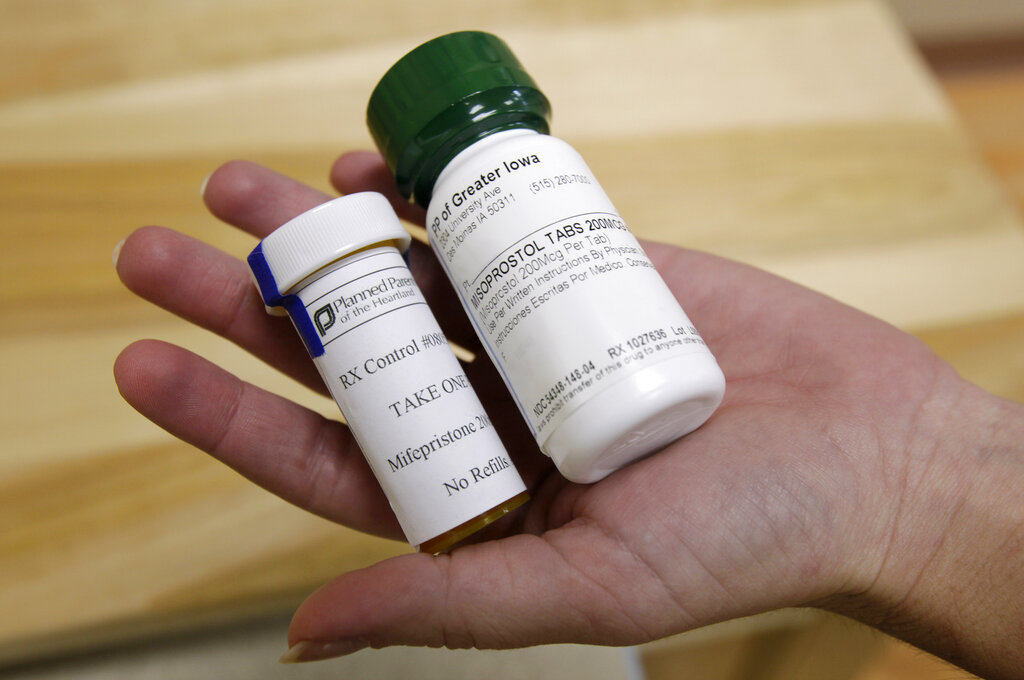Severe Hemorrhaging… ‘Excruciating Pains’: Dangerous Abortion Pills Become New Battleground
Both sides agree that the next frontier in the abortion fight is the abortion pill, also known as RU-486 or chemical abortion. The pills are becoming less regulated and easier to find. And, more women are using them. They accounted for 54% of all US abortions in 2020, compared to 39% in 2017, according to the Guttmacher Institute.
It’s why abortion activists are aggressively promoting the pills. A new phrase is “self-managed abortion” which includes encouraging women to take the pills at home.
“We’re seeing these articles pop up over and over again with how to do-it-yourself abortions,” said Kristan Hawkins, president of Students for Life of America. “These are dangerous.”
They’re also easy to purchase. Last month in Wyoming, Hawkins said she ordered them online in minutes. That’s thanks, in part, to the Food and Drug Administration (FDA), which recently lifted the requirement for an in-person exam.
“It’s presented as if it’s just taking a pill. It’s no big deal,” said Toni McFadden, a pro-life activist who took the pills in high school. She said her provider minimized the risks and initially, she didn’t experience any symptoms other than spotting.
“But then, over a month, close to two months later, while I was in school, I began to feel excruciating pains throughout my entire body,” she said. McFadden began severely hemorrhaging but went home and kept it a secret.
“You can only imagine how traumatic that would be for a teenager to go through all by herself,” she told CBN News. “I was just not educated. I just didn’t know. I didn’t know the term hemorrhaging at that point.”
Today, she’s sharing her story and warning young women of the risks.
FDA reporting shows abortion pills have led to the deaths of 24 women and severe reactions for more than 4,000. Those numbers are likely low because when complications happen, abortion providers urge women to present them as miscarriages in an ER setting.
Also, the CDC does not require abortion reporting and so several states do not share numbers.
“We need a national reporting law,” says Hawkins. “We do not have good statistics on abortion, especially when we’re talking about the complications of abortion.”
For now, strategists like Sue Liebel, state policy director for the Susan B. Anthony List, are working with states to put restrictions on the medication. More than 20 states require a doctor to be present in the room when a woman receives the pills.
“You can’t make them illegal per se because it’s an approved pharmaceutical through the federal FDA. So, that’s the irony and that’s the rub,” says Liebel.
Legal experts on both sides expect that rub will be the new focus of state legislation and litigation.
Steve Aden, general counsel for Americans United for Life, says there’s precedent for restricting the pills.
“The abortion industry argues that the FDA has tied the hands of the state,” he told CBN News. “But the fact is that the case law in this area already strongly suggests that states will have the power to regulate…and even prohibit.”
Both sides are gearing up for a fight that encompasses law, health and safety regulations, internet commerce and what our culture says about unborn life.
***Please sign up for CBN Newsletters and download the CBN News app to ensure you keep receiving the latest news from a distinctly Christian perspective.***

For all the latest health News Click Here

